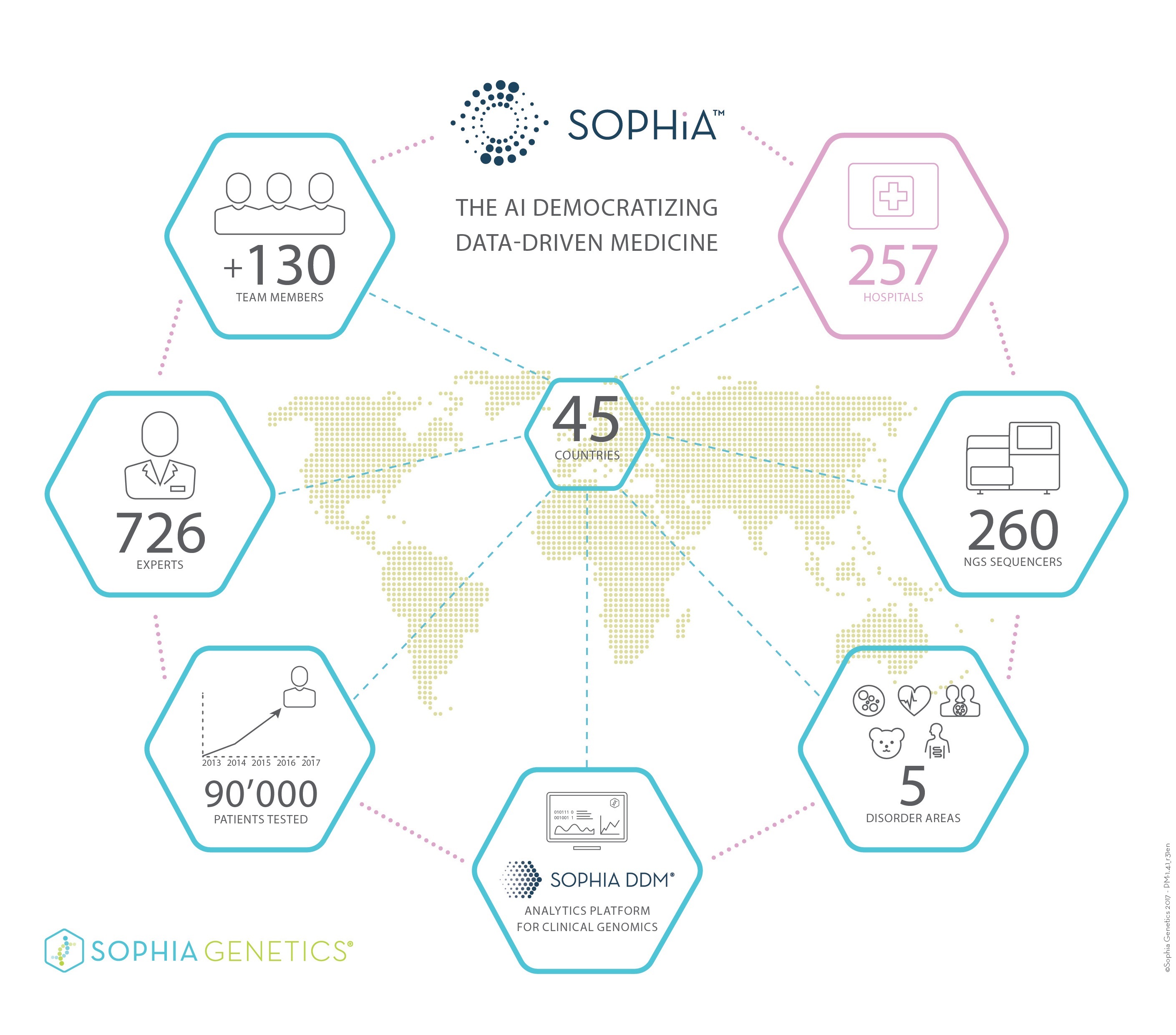
Sophia Genetics, a provider of data-driven medicine, today unveiled the list of African hospitals that have started integrating SOPHiA, the company’s artificial intelligence, into their clinical workflow to advance patients’ care across the continent.
Medical institutions at the forefront of innovation already using SOPHiA in Africa include:
· PharmaProcess in Casablanca, Morocco;
· ImmCell in Rabat, Morocco;
· The Al Azhar Oncology Center in Rabat, Morocco;
· The Riad Biology Center in Rabat, Morocco;
· The Oudayas, Medical Analysis Laboratory, Morocco;
· The Center for Proteomic & Genomic Research (CPGR) in Cape Town, South Africa;
· The Bonassama District Hospital in Douala, Cameroon.
African hospitals are adopting SOPHiA analyzes genomic data to identify disease-causing mutations in patients’ genomic profiles, and decide on the most effective care. As new users of SOPHiA, they become part of a larger network of 260 hospitals in 46 countries that share clinical insights across patient cases and patient populations, which feeds a knowledgebase of biomedical findings to accelerate diagnostics and care.
“Since inception, our vision has been to develop innovative technological solutions that analyze patients’ genomic profiles to offer better diagnosis and care to the greatest number of patients, wherever they live. Today, I am very proud that SOPHiA is triggering a technological leapfrog movement in healthcare across Africa,” said Jurgi Camblong, Sophia Genetics’ CEO and co-founder in a statement.
Among other diseases, SOPHiA will be a key partner for African hospitals in oncology. Breast cancer, for instance, has been described as a “serial killer” on the continent as lack of relevant diagnostics and personalized care means that 60% of women with breast cancer in Africa die versus 20% in the US and EU. According to a 2012 global report from the International Prevention Research Institute, an earlier diagnostic of breast cancer could increase life expectancy by 30%. Globally, on the continent, the number of new cases of cancer every year should jump to 1.6 million by 2030. As oncology expertise might be based in different places across the globe, SOPHiA, ensures that the knowledge of a specialist in Paris will for instance be accessible to save patients in Nairobi.
“In creating a first-of-its-kind Genomic Medicine offering in Africa, using SOPHiA has been beneficial because its analysis are used by a global community of genomic medicine practitioners, allowing us to offer a best-in-class service,” said Dr. Reinhard Hiller from the South African Centre for Proteomic and Genomic Research (CPGR).
